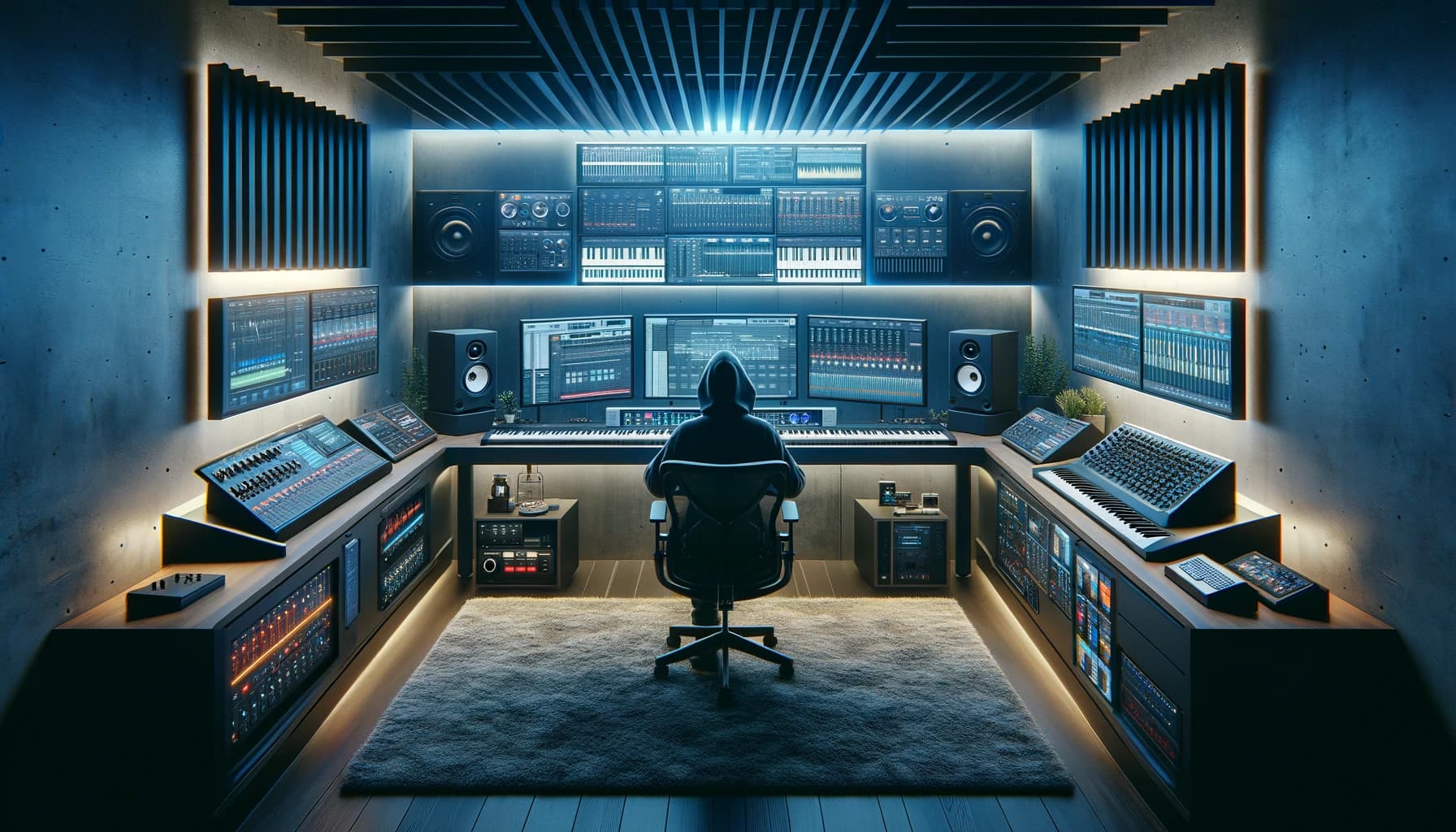Author: Tom Frampton
Source
View Tom Frampton on Plugin Boutique

ShaperBox 3 Bundle: The Ultimate Rhythmic Powerhouse Elevate your sound design with the ShaperBox 3 Bundle, a must-have toolkit for modern producers. This versatile collection brings together 11 powerful Cableguys effects—including Time, Pitch, Volume, and the new LiquidShaper—into one intuitive, multiband interface. Whether you're looking for precise sidechain ducking, complex rhythmic glitches, or lush analog-style filtering, ShaperBox 3 makes it easy to inject musical motion into any track. Praised by top producers like David Guetta and industry titans like Sound On Sound, it’s the definitive solution for solving mix problems and finding instant inspiration.
Whether you’re a budding music producer or a seasoned composer, the decision between DIY mastering and seeking professional assistance is pivotal. This choice can significantly impact the final sound of your music, its reception by the audience, and indeed, your entire creative journey.
In this comprehensive guide, we will delve deep into the realms of DIY mastering versus professional mastering. This exploration is not just about the technicalities but also the nuances that sway a music producer’s decision. We will examine the pros and cons of each route, providing you with a detailed understanding of what each process entails.
For those who are inclined towards DIY mastering, we have a treasure trove of insights and a free guide to mastering that you can download here – a resource that will empower you to elevate your tracks to professional standards.

On the other hand, if you’re considering hiring a professional, we will guide you through the process, with Soundbetter.com being our recommended platform for finding top-notch mastering services.
Our goal is to equip you with the knowledge and tools necessary to make an informed decision about the best route for mastering your music project. Whether you are aiming for the raw authenticity of a DIY approach or the refined touch of a professional master, this post will be your guiding light.
Join us on this sonic journey as we unravel the mysteries of mastering, helping you to transform your music into a masterpiece that resonates with your audience and satisfies your artistic vision.
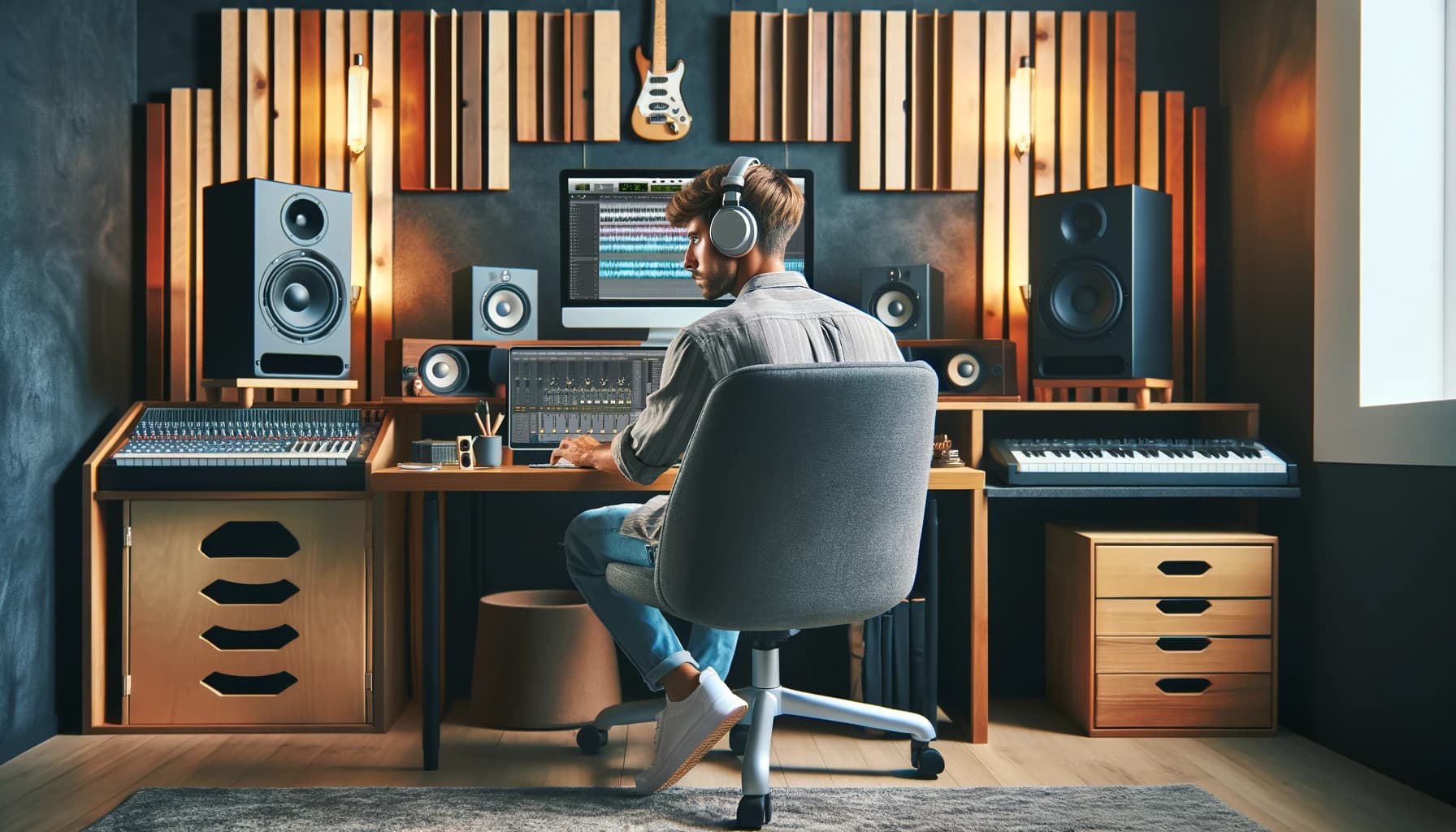
Understanding Mastering
Click Here To Skip This Section If You Know What Mastering Is
Mastering is the final step in the music production process, a critical bridge between mixing and distribution. It’s where a track transitions from a studio creation to a ready-for-release masterpiece. Mastering involves various processes including adjusting levels, enhancing frequencies, and ensuring consistency across an album. Its aim is to create a sonically cohesive and impactful experience for the listener.
The Role of Mastering
The primary purpose of mastering is to ensure that your track sounds its best across all playback systems – from high-end sound systems to smartphone speakers. It involves critical listening and fine-tuning to balance the sonic elements. A mastered track should have the right level of loudness without sacrificing dynamic range, a balanced frequency spectrum, and should be free from any technical flaws such as clicks or unwanted noise.
Enhancing Sound Quality
Mastering engineers use a combination of tools and techniques to enhance the overall sound. Equalization (EQ) is used to balance the tonal aspects, while compression and limiting can manage dynamics and loudness. Spatial enhancement, like stereo widening, can create a more immersive experience. The application of these processes should be subtle yet effective, enhancing the track without altering its fundamental character.
Consistency and Cohesion
For albums or EPs, mastering plays a crucial role in ensuring consistency across different tracks. The goal is to provide a uniform listening experience, where each track flows into the next seamlessly, despite having been mixed at different times or having varied sonic characteristics.
Preparing for Distribution
Mastering also involves preparing the track for various distribution formats, be it digital streaming platforms, vinyl, or CDs. This includes paying attention to format-specific requirements, like the loudness standards for streaming services or the physical limitations of vinyl.
Mastering is as much an art as it is a science. It requires not only technical expertise but also a deep understanding of how music conveys emotion and energy. Whether opting for DIY mastering or entrusting your music to a professional, understanding the essence of mastering is crucial for making informed decisions about how your music will be presented to the world.
In the next sections, we’ll explore the intricacies of DIY mastering and when it might be more appropriate to seek a professional’s touch. By understanding the strengths and limitations of each approach, you’ll be better equipped to decide which path aligns best with your artistic vision and the technical demands of your music.
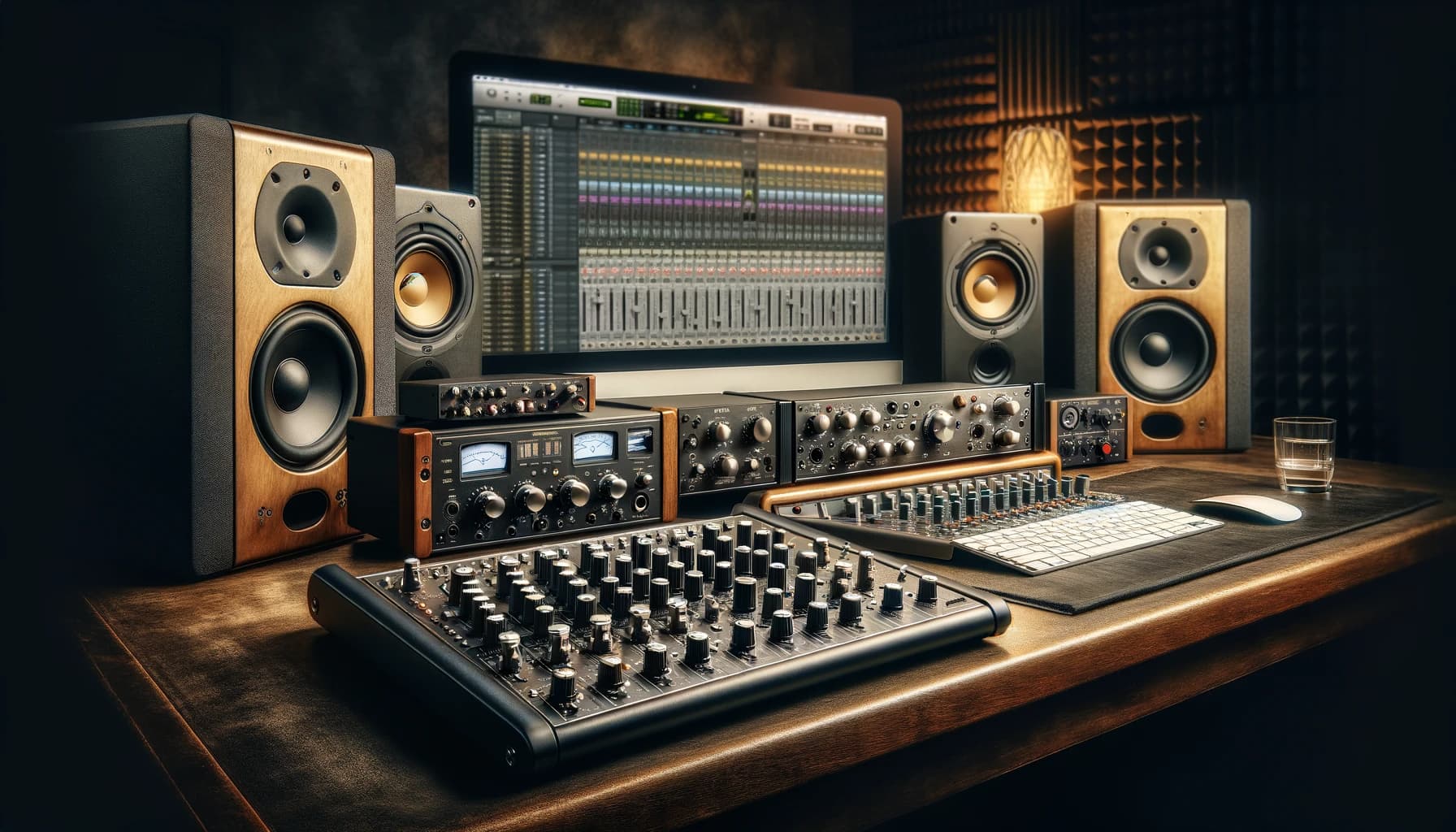
DIY Mastering: An Overview
DIY mastering is the process of finalizing your music tracks using your resources and skills, without the involvement of a professional mastering engineer. This approach has become increasingly popular, especially among independent artists and producers who prefer a hands-on approach to their music’s final sound.
The DIY Mastering Approach
DIY mastering requires a combination of the right tools and a keen ear. The process involves using a digital audio workstation (DAW) with mastering plugins to adjust levels, EQ, dynamics, and other sonic characteristics. Mastering The Mix offers a range of tools that are particularly beneficial for this purpose. For instance, using REFERENCE can help you match the tonal balance of your tracks to professionally mastered songs, while LEVELS provides essential visual feedback on the technical aspects of your master.
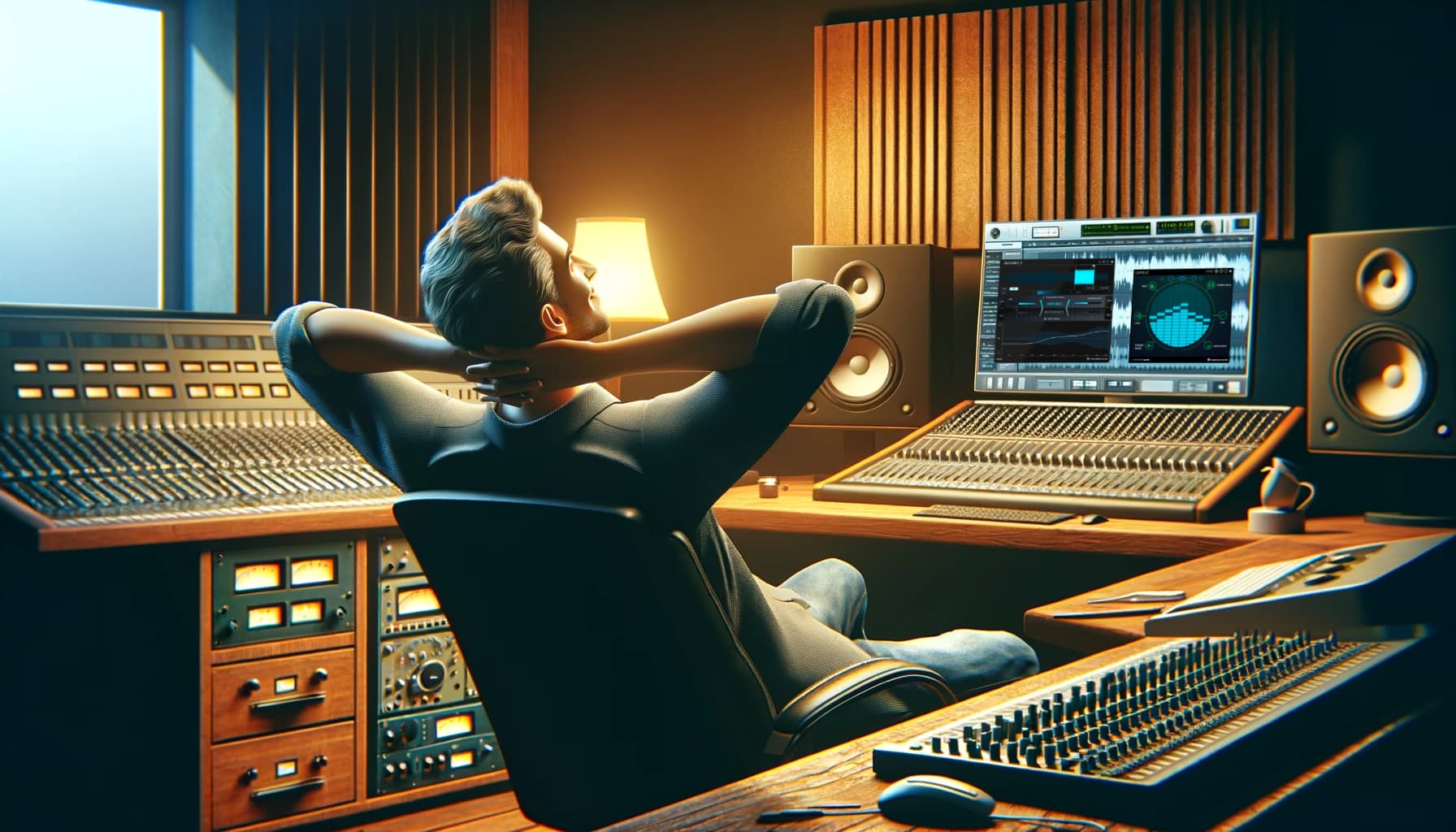
Tools and Software
A basic home studio setup for DIY mastering typically includes:
- A computer with a reliable DAW.
- High-quality studio monitors for accurate sound reproduction.
- A good audio interface for clean audio input and output.
- Mastering plugins like EQ, compressor, limiter, and metering tools.
Mastering The Mix’s plugins, such as BASSROOM for precise low-end management and MIXROOM for mid to high-frequency clarity, can significantly enhance your DIY mastering process.
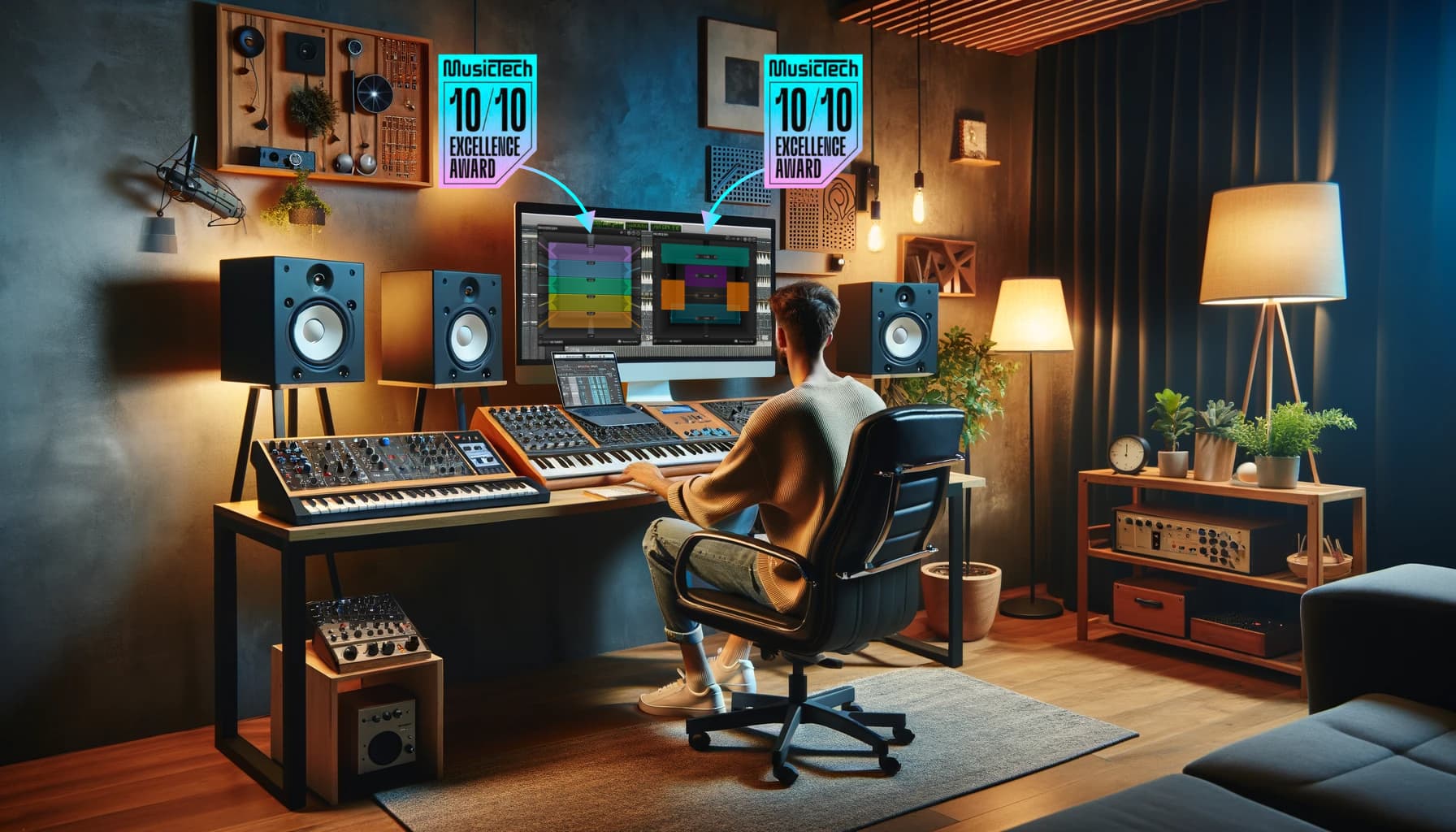
The Learning Curve
Mastering is a skill that requires both technical knowledge and artistic sensitivity. The learning curve can be steep, but it’s also an opportunity for personal growth and deeper involvement in your music production. Experimenting with different techniques and tools, and critically listening to your work, are key to developing your mastering skills.
Time Investment
DIY mastering is not just about having the right tools; it requires time and patience. Understanding the subtleties of your music and how to translate them into a master that sounds great on all systems is a meticulous process. This investment in time can be a fulfilling part of the creative process for many producers.
DIY mastering offers a sense of accomplishment and a deeper connection to your music. While it may not always match the quality of a professionally mastered track, it allows for complete creative control and a unique learning experience.
As you embark on this journey, remember that Mastering The Mix is here to support you with tools and resources, including our free guides to mastering. Click below to download them (no sign up required)
In the next section, we’ll explore the benefits of taking the DIY route for mastering your music.

Benefits of DIY Mastering
The allure of DIY mastering lies in the unique benefits it offers, especially to independent artists and producers who favor a hands-on approach. Here, we delve into the advantages of mastering your tracks in your own space, with your tools, and at your pace.
Cost-Effectiveness
One of the most significant benefits of DIY mastering is cost savings. Professional mastering services can be expensive, particularly for independent artists working with limited budgets. By mastering your tracks yourself, you can save money while gaining valuable skills. This is especially beneficial for artists who frequently release music and can apply these skills consistently.
Full Creative Control
DIY mastering puts you in the driver’s seat of the final sound of your track. This level of control allows you to make artistic decisions that align closely with your vision for the music. Unlike working with an external engineer, you have the freedom to experiment and make changes until you’re completely satisfied with the outcome.
Skill Development and Understanding
Mastering your music deepens your understanding of sound and how it behaves in different environments. This learning process enhances your overall production skills, making you a more well-rounded music producer. It encourages a deeper engagement with your music, fostering a greater appreciation for the nuances of sound.
Personal Fulfillment
There’s a unique sense of accomplishment that comes from mastering your music. It adds a personal touch to your work, making the final product truly yours. This sense of ownership and pride in your music can be incredibly fulfilling.
Flexibility
With DIY mastering, you work on your schedule, allowing for more flexibility in terms of deadlines and revisions. You can take your time to ensure every aspect of the track meets your standards, without the pressure of external timelines.
Learning Opportunities
The DIY route offers endless learning opportunities. With our free guide to mastering, you can continuously improve your skills. Every track mastered is a chance to learn something new, further honing your abilities as a producer.
While DIY mastering presents these benefits, it’s important to recognize its limitations and when professional input might be necessary. In the next section, we’ll explore the challenges you might face in the DIY mastering process.
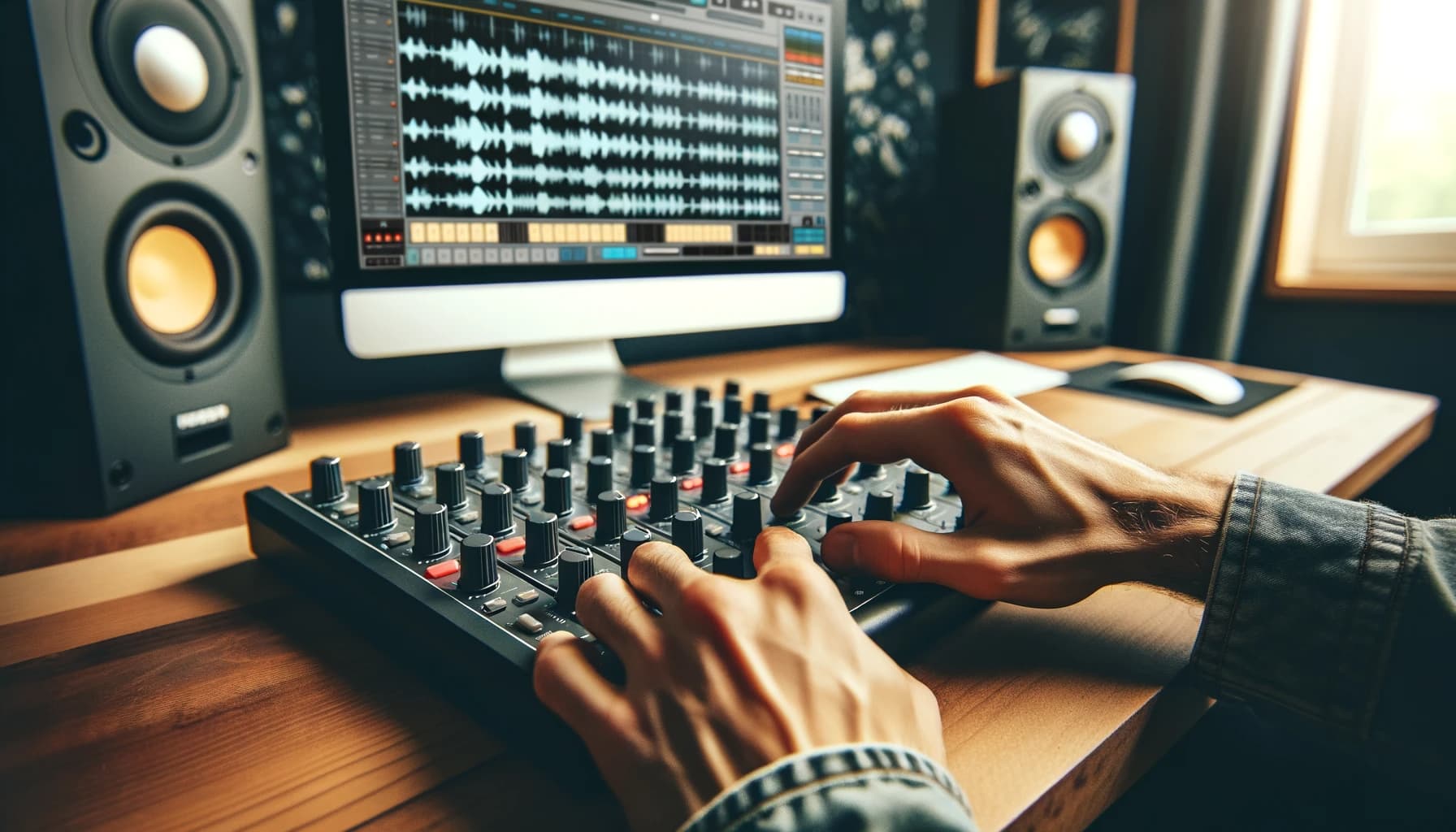
Challenges of DIY Mastering
While DIY mastering offers a range of benefits, it also comes with its own set of challenges. Understanding these hurdles is crucial for music producers who opt for the DIY route, as it helps in setting realistic expectations and preparing for potential obstacles.
Equipment and Room Limitations
One of the primary challenges of DIY mastering is the limitation posed by equipment and room acoustics. Professional mastering studios are equipped with high-end gear and are acoustically treated to provide a flat, neutral listening environment. In a home studio, achieving this level of precision can be difficult. Compromises in equipment quality and room acoustics can lead to masters that don’t translate well on other systems.
Biased Listening
When mastering your own music, there’s a risk of developing ‘ear fatigue’ or being too close to the project. This familiarity can lead to biased decisions or overlooking flaws that an external, fresh pair of ears might catch. The emotional attachment to the music can sometimes cloud judgment, affecting critical listening skills crucial for effective mastering.
Achieving Professional Sound
Professional mastering engineers bring years of experience and refined ears to the table. They can hear subtle nuances and know how to make fine adjustments that can significantly enhance a track. For DIY masters, reaching this level of finesse can be challenging, especially for those who are still developing their mastering skills.
Technical Knowledge
Mastering is not just about adjusting levels and applying EQ. It requires a deep understanding of various technical aspects, such as dynamics processing, stereo imaging, and format-specific requirements. Acquiring this knowledge takes time and practice, which can be overwhelming for beginners.
Time and Effort
Mastering is a time-consuming process that requires patience and attention to detail. For independent artists juggling multiple roles, dedicating enough time to mastering can be challenging. It also requires a consistent effort to learn and improve, which might be demanding alongside other musical pursuits.
Despite these challenges, DIY mastering remains a valuable skill for music producers. It offers a deeper understanding of your music and the mastering process, paving the way for greater artistic freedom and self-sufficiency. In the next section, we will explore the world of professional mastering and when it might be the better choice for your music.
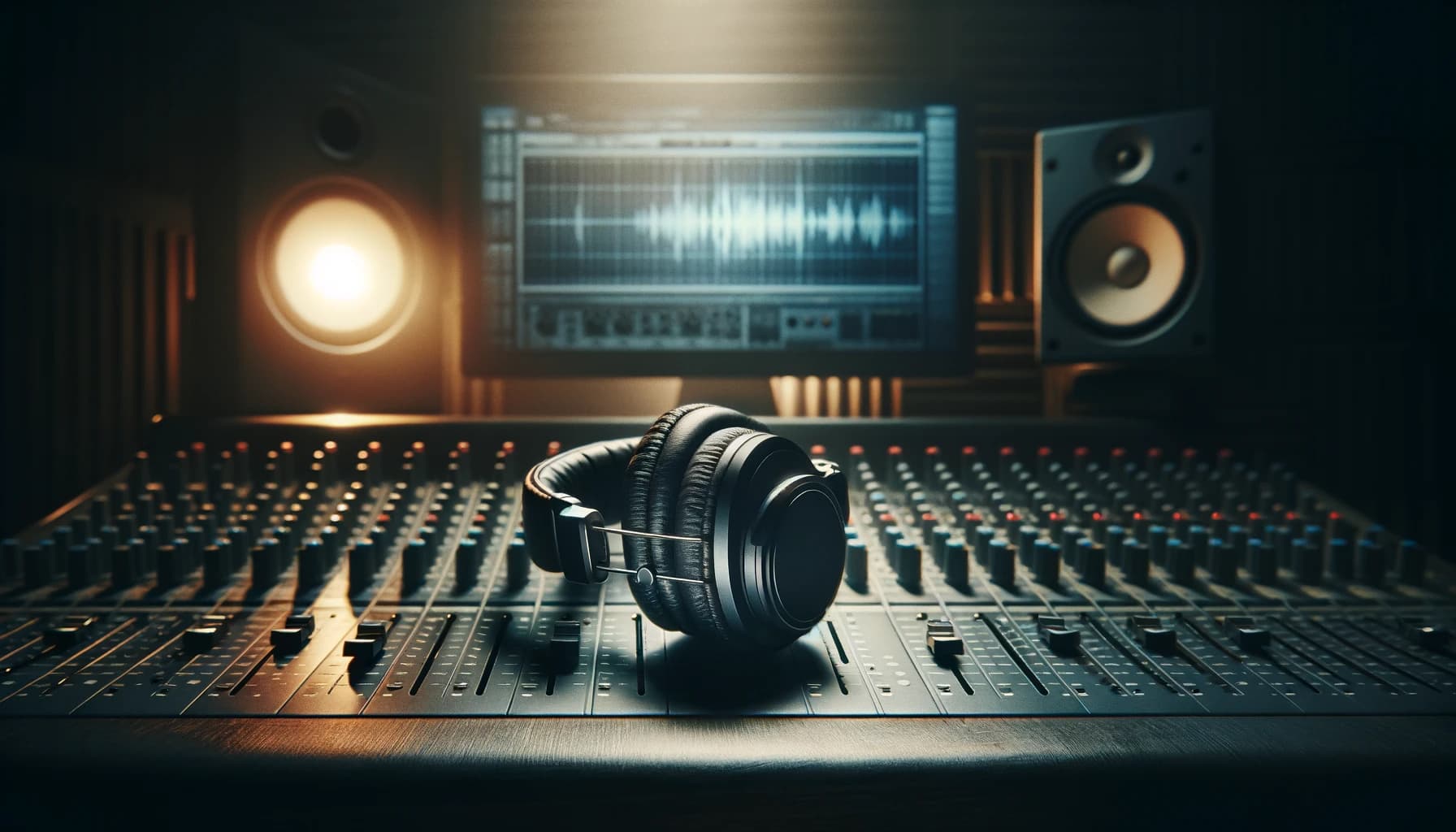
Professional Mastering: An Overview
Professional mastering is the process of having your music tracks finalized by an experienced mastering engineer in a specialized studio. This approach offers distinct advantages, especially in terms of technical expertise, equipment quality, and listening environment. Let’s explore what professional mastering entails and the unique benefits it brings to your music.
The Professional Approach
Professional mastering engineers utilize a combination of high-end analog and digital equipment to bring out the best in your tracks. Their studios are acoustically treated and equipped with state-of-the-art monitoring systems, ensuring that they can hear every detail and nuance in your music. These engineers have spent years honing their craft, developing a deep understanding of how to balance and enhance a track for optimal listening across various platforms and devices.
Expertise and Equipment
The expertise of a professional mastering engineer is invaluable. They bring an objective perspective to your music, identifying and rectifying issues that you might not have noticed. Their experience in working with a wide range of genres and styles enables them to apply the right techniques to enhance your music. The high-end equipment and software available in professional studios can make subtle yet impactful improvements that might be challenging to achieve in a home studio environment.
Acoustic Precision
A professional mastering studio is designed for acoustic precision. This environment allows the mastering engineer to make critical adjustments with a level of accuracy that is difficult to replicate in a home studio. The precise monitoring setup ensures that the mastered tracks will translate well across various listening environments, from high-fidelity systems to everyday headphones.
Tailored Mastering
Professional mastering services offer tailored solutions based on your music’s needs and the distribution medium. Whether you are releasing your music on streaming platforms, vinyl, or CDs, a mastering engineer can optimize your tracks accordingly, ensuring the best possible sound quality for each format.
The Human Touch
While technology has advanced significantly, the human element in mastering cannot be underestimated. A professional mastering engineer’s judgment and creative input can elevate a track in ways that automated processes and software cannot replicate. This human touch can be the difference between a good track and a great one.
Professional mastering represents an investment in your music’s quality and potential. It provides peace of mind, knowing that your tracks are in the hands of an expert who will ensure they sound their best. In the next section, we will discuss the benefits of professional mastering in more detail, helping you understand why and when it might be the right choice for your project.

Benefits of Professional Mastering
Opting for professional mastering services offers unique advantages that can significantly elevate the quality of your music. These benefits go beyond the technical aspects, encompassing the valuable input and expertise of seasoned mastering engineers. Here, we’ll delve into the key advantages of entrusting your tracks to a professional.
Access to Expertise and Experience
Professional mastering engineers possess a wealth of experience and specialized training. Their expertise enables them to identify and correct issues that may not be apparent to the untrained ear. They bring an objective perspective to your music, providing critical feedback that can improve not just the track at hand but also inform your future productions.
High-End Equipment and Acoustics
Professional studios are equipped with state-of-the-art gear and acoustically treated environments, ensuring precise and accurate mastering. This setup allows mastering engineers to make nuanced adjustments that might be impossible in a less-equipped home studio. The quality of equipment and environment in a professional studio plays a pivotal role in achieving a polished, industry-standard sound.
Objectivity and Unbiased Feedback
Working with a professional provides a fresh set of ears to evaluate your music. This objectivity is crucial in identifying areas that need improvement, offering an unbiased perspective that can be hard to achieve in DIY mastering. This external viewpoint can help in making decisions that enhance the overall impact and appeal of your track.
Time Efficiency
Professional mastering can save you a considerable amount of time, especially if you are dealing with tight deadlines or multiple projects. Mastering engineers are adept at working efficiently without compromising on quality, ensuring your music is ready for release within your required timeframe.
Optimal Results for Commercial Releases
For music intended for commercial release or wide distribution, professional mastering ensures that your tracks meet industry standards. Mastering engineers are adept at preparing music for various formats, from streaming platforms to vinyl, ensuring optimal playback across all mediums.
Peace of Mind
Knowing that your music is in the hands of an experienced professional provides peace of mind. This assurance allows you to focus on other aspects of your music career, confident that the final mastering will meet your expectations and resonate with your audience.
Professional mastering services offer a blend of technical precision, artistic insight, and industry-standard quality. They provide an invaluable resource for artists seeking to ensure their music sounds its best in today’s competitive industry.
On Soundbetter.com, you can chose from a range of great mastering engineers who have a ton of projects under their belts as well as hundreds of reviews from real customers.
In the next section, we’ll explore when and why you should choose professional mastering for your music projects.
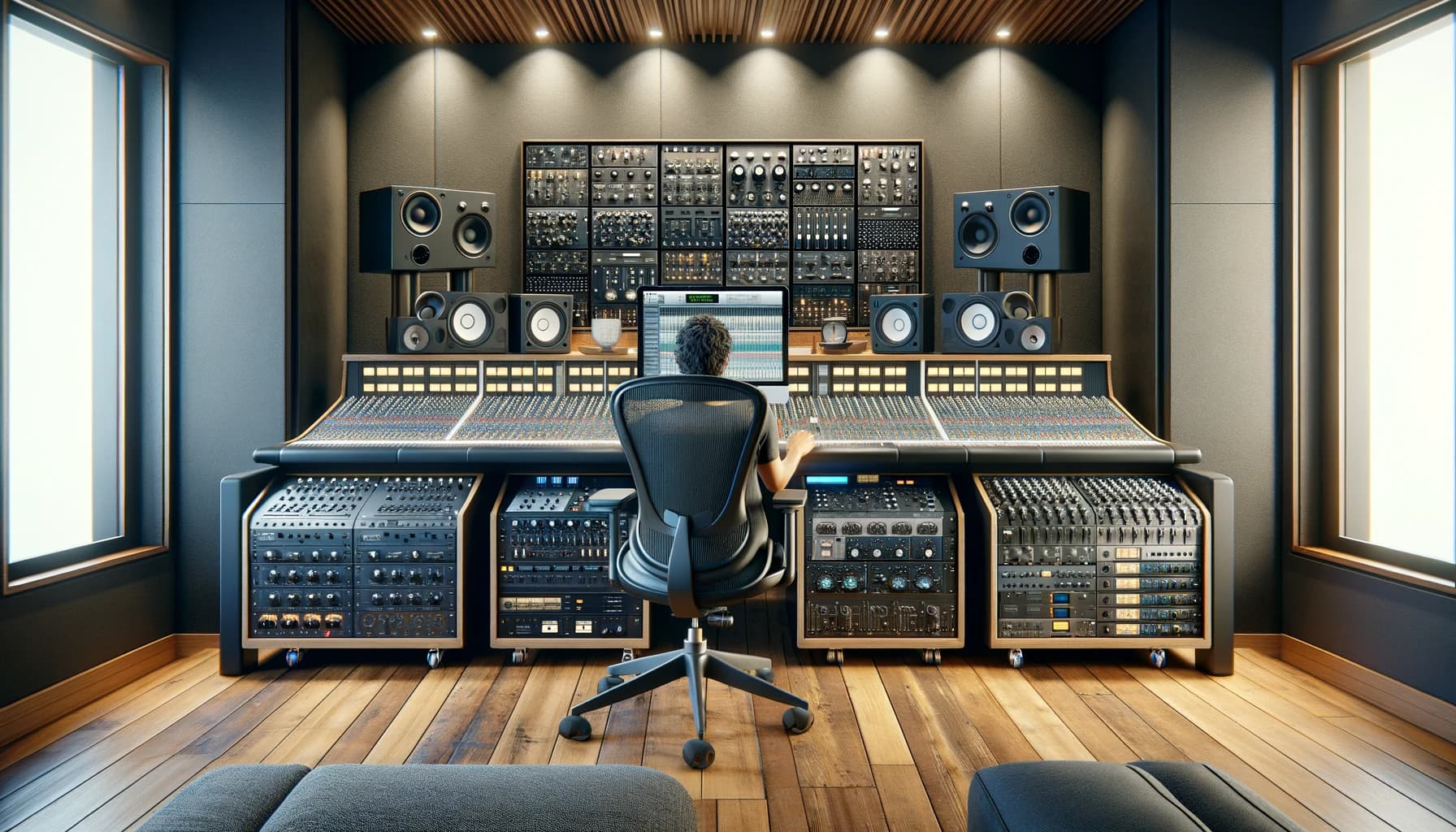
When to Choose Professional Mastering
Deciding when to opt for professional mastering can be a pivotal moment in a music producer’s journey. While DIY mastering offers significant benefits, there are scenarios where the expertise of a professional mastering engineer is invaluable. Let’s explore when and why choosing professional mastering is the best route for your project.
1. Commercial Releases
For music intended for commercial release, professional mastering is often essential. The competition in the commercial music industry is fierce, and having your tracks mastered professionally can give you an edge. It ensures that your music meets industry standards and stands out in terms of quality and professionalism.
2. Genre-Specific Requirements
Certain genres of music, such as classical, jazz, or high-dynamic electronic music, may require the nuanced touch of a professional. These genres often have specific mastering needs that benefit from the experienced ears and specialized techniques of a professional mastering engineer.
3. Complex Projects
Projects with multiple tracks, such as albums or EPs, can benefit greatly from professional mastering. Ensuring consistency across various tracks, each with its unique mix, can be a challenging task. A professional mastering engineer can maintain a cohesive sound across the entire project, enhancing the overall listening experience.
4. Limited Technical Knowledge or Resources
If you lack the technical knowledge or resources required for high-quality mastering, it’s wise to seek professional help. This ensures that your music is not compromised due to technical limitations or lack of experience.
5. Objective, Expert Feedback
Sometimes, an external, unbiased perspective can make all the difference. A professional mastering engineer can provide critical feedback and suggestions that can improve not only your current project but also your approach to future productions.
6. Time Constraints
If you are working under tight deadlines, professional mastering can save valuable time. Mastering engineers are adept at working efficiently, delivering high-quality results within your required timelines.
Professional mastering is a worthwhile investment for your music, especially when the project demands a level of quality and precision that DIY mastering might not achieve. It’s about choosing the right path that aligns with your project’s needs, your artistic goals, and the message you wish to convey through your music.
In the next section, we will discuss how to decide the best route for your project, balancing the benefits and limitations of both DIY and professional mastering.

How to Decide the Best Route for Your Project
Deciding between DIY and professional mastering is a significant choice that can impact the final quality of your music. This decision should be based on a variety of factors including your project’s needs, your skills, resources, and the goals for your music. Here’s a guide to help you make the best choice for your project.
Assessing Your Project’s Needs
- Complexity of the Music: Consider the genre and complexity of your music. Complex arrangements or genres with specific mastering needs may benefit more from professional mastering.
- Distribution Goals: If you’re aiming for a commercial release, professional mastering might be more suitable to ensure your music competes well in the industry.
- Consistency Across Tracks: For albums or EPs, maintaining consistency is key. A professional can ensure cohesive sound quality across all tracks.
Evaluating Your Skills and Resources
- Mastering Knowledge and Experience: Honestly assess your mastering skills. If you’re new to mastering or unsure about your abilities, professional mastering could be a safer bet.
- Available Equipment: Evaluate your equipment and environment. A lack of professional-grade tools or an untreated room can hinder the quality of DIY mastering.
Understanding Your Goals and Audience
- Artistic Vision: Consider how much control you want over the final sound. DIY mastering offers more control, while professional mastering provides expert guidance.
- Target Audience: Think about your audience and where they will be listening to your music. This can influence the level of mastering quality needed.
Balancing Budget and Time Constraints
- Budget: Professional mastering can be costly. If budget constraints are a concern, DIY mastering or finding budget-friendly professional services is key.
- Deadlines: Tight deadlines might necessitate professional mastering due to its efficiency and quick turnaround.
Seeking Feedback
- Get Feedback: Before making a decision, get feedback on your mixes from trusted peers or mentors. Their input can help guide your decision.
Trial and Error
- Experiment: If possible, try mastering a track yourself and then have the same track professionally mastered. Comparing the two can offer valuable insights.
Deciding on DIY versus professional mastering is a nuanced choice that depends on a variety of personal and project-specific factors. Consider each aspect carefully and choose the path that best aligns with your project’s needs and your aspirations as an artist. Remember, the goal is to ensure your music sounds its best, regardless of the mastering route you choose.
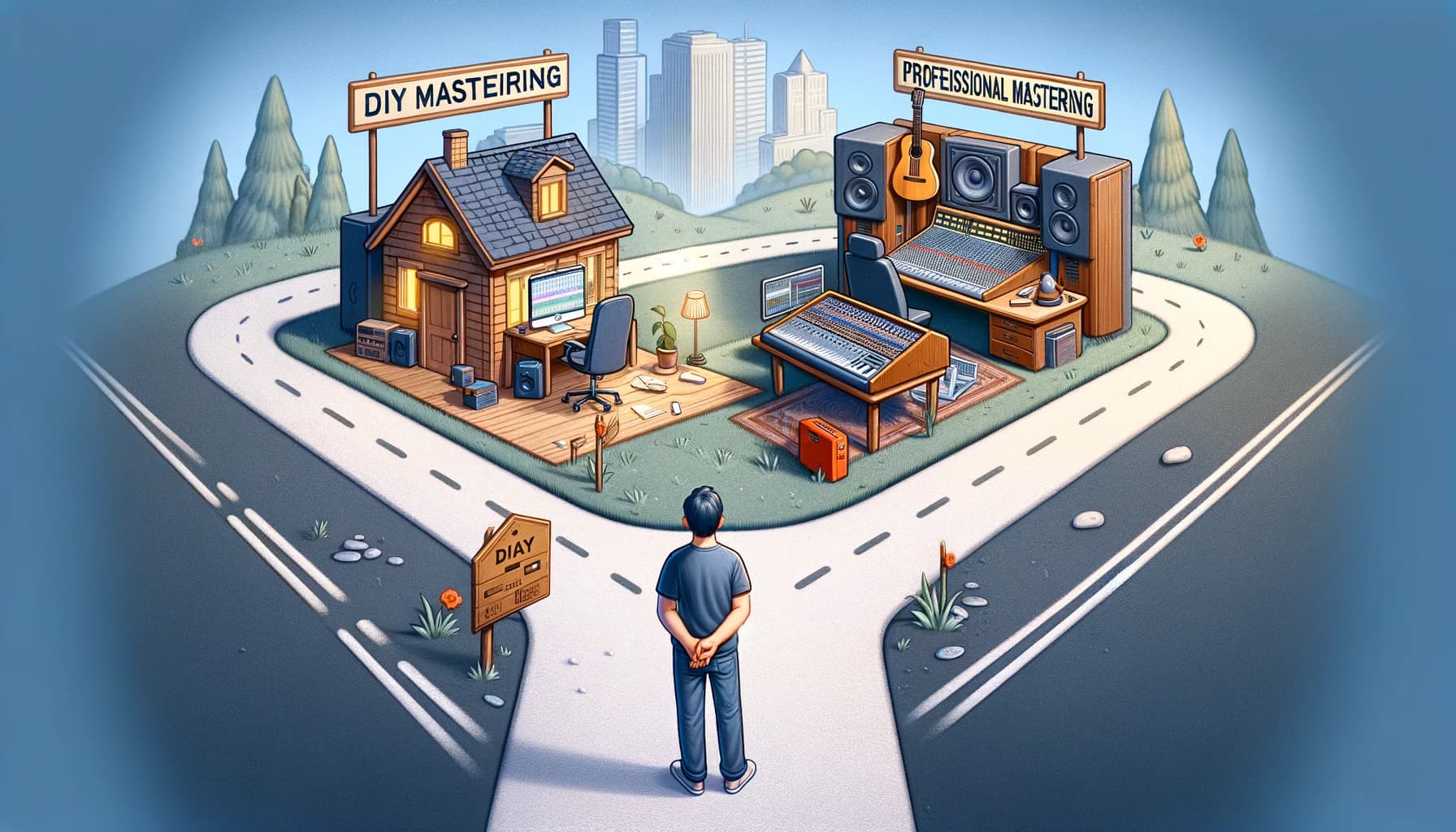
Conclusion
As we conclude our exploration of DIY mastering versus professional mastering, it’s clear that both paths offer unique benefits and challenges. The choice between these two routes depends on various factors: your project’s requirements, your skills and resources, your artistic vision, and your goals for the music.
Embrace Your Journey
Remember, mastering is more than just a final technical step; it’s a critical part of your creative journey. Whether you choose to master your tracks yourself or to collaborate with a professional, what matters most is how the final product reflects your artistic intent and connects with your audience.
Continuous Learning
For those who opt for DIY mastering, continue to learn and experiment. The journey of mastering your music is a rewarding one that not only enhances your current projects but also contributes to your growth as a music producer. Don’t forget to download our free guide to mastering (link to be added), a valuable resource to help you along your DIY mastering journey.
Seeking Professional Expertise
If you decide to go the professional route, choose a mastering engineer whose style and experience align with your musical genre and vision. Platforms like Soundbetter.com are excellent resources for finding experienced professionals who can bring the best out of your music.
Your Music, Your Choice
Ultimately, whether you choose DIY mastering or professional services, what’s important is that you’re confident in your choice and that your music sounds the best it can be. Trust your instincts, rely on your skills, and don’t hesitate to seek out the resources and help you need.
Thank you for joining us on this exploration of mastering. We hope this guide has provided you with valuable insights and the knowledge to make informed decisions about the mastering process for your music. Now, go forth and create, master, and share your music with the world!





